While reading your new book, “The Secret Knowledge,” I thought, My God, in crucifying liberals, this guy is going to infuriate a huge chunk of the people who pay money to see plays. Are you concerned that you’re alienating your public?
Years ago, you described “American Buffalo” as being about “how we excuse all sorts of great and small betrayals and ethical compromises called business.” In this book, you defend enormous payouts to C.E.O.’s working for failing corporations. You seem to have changed radically.
I have. Here’s the question: Is it absurd for a company to pay hundreds of millions of dollars to a C.E.O. if the company is failing? The answer is that it may or may not be absurd, but it’s none of our goddamned business. Because as Milton Friedman said, the question is not what are the decisions but who makes the decisions. Because when the government starts deciding what’s absurd, you’re on the road to serfdom.
Don’t you have to denounce your early, anticapitalistic work then?
Of course not. At that time in my life I didn’t have a penny, and I was glad to be working at entry-level jobs. Having lived for quite a while longer, I see life from a different perspective. What am I going to do, go on denouncing capitalism all my life?
I gather you’re not subsisting on a diet of Rachel Maddow and The New York Review of Books. What do you read on a daily basis?
I went to a consultant a few years back, and he said, “You want to make your life better?” I said, “Yeah, sure.” He said, “Stop drinking and don’t read the newspapers.” So I did both.
There’s an anti-intellectual flavor to your dismissal of the liberal arts, saying the only thing an M.A. in English can do is bag groceries. You don’t consider yourself an intellectual?
I don’t know. If you look at Paul Johnson’s or Thomas Sowell’s description of the term, it would be a guy who’s not aware that he doesn’t know anything.
So if your son wanted to study sociology at Columbia, you wouldn’t pay?
I’d go check the birth records, because I’m told that 17 percent of kids get given to the wrong parents.
You wrote that Karl Marx “never worked a day in his life.” But how is his writing “Das Kapital” fundamentally different from the way you make a living? You realize you’re not a plumber, right?
Jesus Christ. Listen, here’s the thing about an English degree — if you sat somebody down and asked them to make a list of the writers they admire over the last hundred years, see how many of them got a degree in English.
Sometimes in the book I thought you were just trying to anger some of your liberal friends, like when you wrote the West sees the Middle East conflict as “entertainment.”
No, I think that it’s true. There has always been a different standard for the Jews. We’re like “honorary Aryans,” as Hitler said of the Japanese. That means that we’re human beings only when it suits the world to treat us as human beings. There’s a pretty good book on the subject — the Torah.
You also wrote about hating “every wasted, hard-earned cent I spent in taxes.” What cent did you hate the most?
All of them gall me the most. Listen, Shelby Steele and I were on a panel, and some white woman asked, “What can we do for the African-American community?” There was a long pause, and he said, in the saddest voice I’ve ever heard, “Leave us alone.” It’s appalling what the government has done to the great African-American community in the last 50 years.
Back to show business for a second. Do you care about reviews?
Of course you care. I don’t read them, but you don’t really have to — you know what they are with the way people respond. There’s nothing in the world more silent than the telephone the morning after everybody pans your play. It won’t ring from room service; your mother won’t be calling you. If the phone has not rung by 8 in the morning, you’re dead.
I have. Here’s the question: Is it absurd for a company to pay hundreds of millions of dollars to a C.E.O. if the company is failing? The answer is that it may or may not be absurd, but it’s none of our goddamned business. Because as Milton Friedman said, the question is not what are the decisions but who makes the decisions. Because when the government starts deciding what’s absurd, you’re on the road to serfdom.
Don’t you have to denounce your early, anticapitalistic work then?
Of course not. At that time in my life I didn’t have a penny, and I was glad to be working at entry-level jobs. Having lived for quite a while longer, I see life from a different perspective. What am I going to do, go on denouncing capitalism all my life?
I gather you’re not subsisting on a diet of Rachel Maddow and The New York Review of Books. What do you read on a daily basis?
I went to a consultant a few years back, and he said, “You want to make your life better?” I said, “Yeah, sure.” He said, “Stop drinking and don’t read the newspapers.” So I did both.
There’s an anti-intellectual flavor to your dismissal of the liberal arts, saying the only thing an M.A. in English can do is bag groceries. You don’t consider yourself an intellectual?
I don’t know. If you look at Paul Johnson’s or Thomas Sowell’s description of the term, it would be a guy who’s not aware that he doesn’t know anything.
So if your son wanted to study sociology at Columbia, you wouldn’t pay?
I’d go check the birth records, because I’m told that 17 percent of kids get given to the wrong parents.
You wrote that Karl Marx “never worked a day in his life.” But how is his writing “Das Kapital” fundamentally different from the way you make a living? You realize you’re not a plumber, right?
Jesus Christ. Listen, here’s the thing about an English degree — if you sat somebody down and asked them to make a list of the writers they admire over the last hundred years, see how many of them got a degree in English.
Sometimes in the book I thought you were just trying to anger some of your liberal friends, like when you wrote the West sees the Middle East conflict as “entertainment.”
No, I think that it’s true. There has always been a different standard for the Jews. We’re like “honorary Aryans,” as Hitler said of the Japanese. That means that we’re human beings only when it suits the world to treat us as human beings. There’s a pretty good book on the subject — the Torah.
You also wrote about hating “every wasted, hard-earned cent I spent in taxes.” What cent did you hate the most?
All of them gall me the most. Listen, Shelby Steele and I were on a panel, and some white woman asked, “What can we do for the African-American community?” There was a long pause, and he said, in the saddest voice I’ve ever heard, “Leave us alone.” It’s appalling what the government has done to the great African-American community in the last 50 years.
Back to show business for a second. Do you care about reviews?
Of course you care. I don’t read them, but you don’t really have to — you know what they are with the way people respond. There’s nothing in the world more silent than the telephone the morning after everybody pans your play. It won’t ring from room service; your mother won’t be calling you. If the phone has not rung by 8 in the morning, you’re dead.
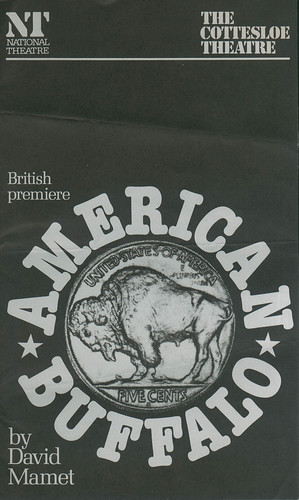
Fran
New York, NY
This is not in the least surprising. Mamet's misogyny is a constant presence in his plays as are the hyper-masculine male characters. These human distortions are part of the right wing coda - for example, George Bush clearing brush on his faux ranch or the endless efforts of the "pro-life" crowd to dominate women's freedom by restricting their access to birth control and abortion. The cartoonish smart guy-ism of Newt Gingrich is another rightward meme. I used to see Mamet strutting up 8th avenue near my home and I was always struck by his military sytle garb. It had a certain unsavory resemblance to the kinds of uniforms seen in totalitarian places. Maybe he's always been right wing. In any case, in spite of his language, he's kind of a bore.
E. Nowak
Chicagoland, IL
Hey, since Mamet believes in an Ayn Rand utopia, where only the "best" people should be enriched for their "superior" works, I'll do his bidding. I won't buy another thing with anything with his name attached to it.
Jim
Boston
Hot air is still hot air whether it's blowing from the left or the right. Maybe the problem is that he stopped drinking and reading newspapers. Now he's still grumpy and ill informed as well.
cmk
Omaha, NE
Mamet's incredible and unique contribution to the structure of dialogue and subtext has only taken him so far. Unfortunately in the area of content, over the years, he increasingly seems a one-trick pony. The trick? He's ANGRY. I thought when he got older, he'd get deeper, but instead, he's just doing a variation on the old trick. Substitute the object of the flippancy and anger--in the plays or in this book--and you've the same-old, same-old.
If this "literary" rant of his doesn't sell as well as it might, he may attribute it to lock-step lefties, but dare I suggest that interest in artists' views on subjects other than their own art (even their autobiographies) tends to be proportional to the respect for the artists' consistent achievements in their art. And his year-in, year-out anger has reached tedium.
American Buffalo broke a tiny bit of ground; Glengarry was a masterpiece. It's been downhill from there. I hope at some point he's able to move beyond rage, but the theatre will survive without him. The dog barks, the caravan passes by.
Ron
Chicago
I guess I'll have to read the book. The David Mamet who skewered business ethics in "Glengarry-Glen Ross" and "The Water Engine" seems to have traveled a long way to get into bed with the Wall Street crowd. I'm scratchin' my head (no beret in the way).
Barlo
Los Angeles CA
Mamet thinks that "When the government starts deciding what's absurd, you're on the road to serfdom." And when corporations start deciding what's absurd, you're on the road to slavery.
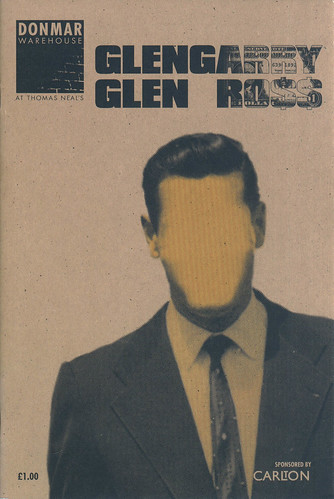
Zev V
Chicago
The man hasn't done anything theatrically significant in at least 20 years. Now he veers to the right, and he's in the paper again. Smart business move, but still not particularly significant.
california
mamet resoundingly, and with a loud whine, falls right into the old cliché, "democrats become republicans when they are old and rich...,"
whereismikeyfl
Miami, FL
So he claims that the views of his youth were based on his circumstances more than actual principles. So why should we listen to this current views given that they change with his economic status?
David Mamet's 1987 directorial debut was this mesmerizing study of control and seduction between two kinds of detached observers: a gambler who is also a con artist, and a psychotherapist who is also an emerging pop-psych guru in the book market. The latter (played by Lindsay Crouse) meets the former (Joe Mantegna) when one of her clients is driven to despair from his debts to the card shark. Mantegna's character agrees to drop the IOUs in exchange for Crouse's attention at the seedy House of Games in Seattle, a mecca for con men to talk shop and hustle unsuspecting customers. The shrink gets so caught up in the arcane rules and world view of her guide over subsequent days that she observes--with no false rapture--various stings in progress inside and outside the club. Mamet's story finally becomes a fascinating study of two people protecting and extending their respective cosmologies the way rival predators fight for the same piece of turf. The psychological challenge is compelling; so is the stylized dialogue, with its pattern of pauses and hiccups and humming meter. Mostly shooting at night, Mamet also gave Seattle a different look from previous filmmakers, turning its familiar puddles into concentrations of liquid neon and poisonous noir. --Tom Keogh
Pulitzer Prize–winning playwright and screenwriter David Mamet first sat in the director’s chair for this sly, merciless thriller, one of the most original and acclaimed films of the eighties. Mamet’s witty tale of a therapist and best-selling author (Lindsay Crouse) who must confront her own obsessions when she meets an attractive cardsharp (Joe Mantegna) is as psychologically acute as it is full of twists and turns, a rich character study told with the cold calculation of a career criminal.
rogerebert.suntimes.com/apps/pbcs.dll/article?AID=/199910...

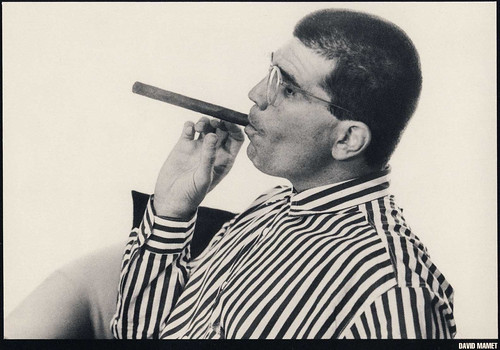
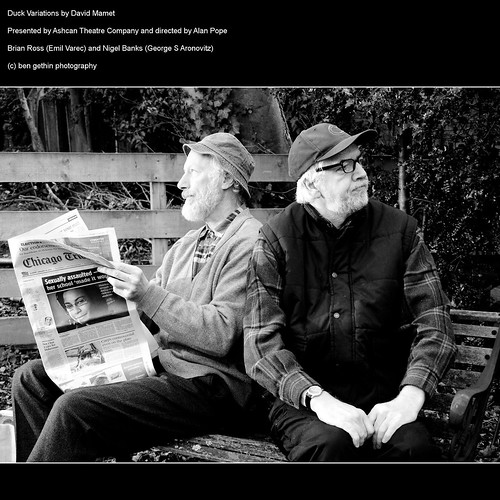
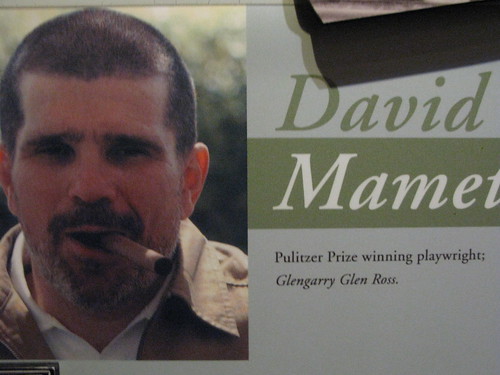
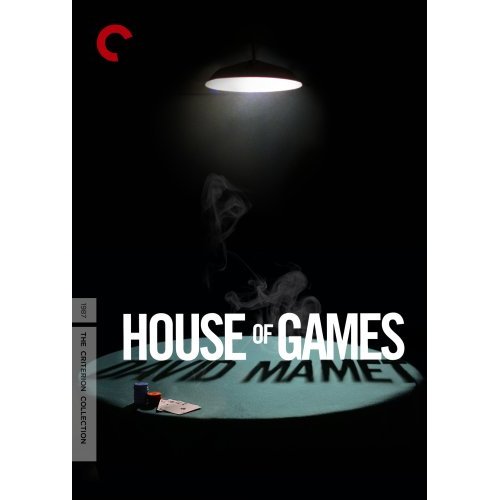

Niciun comentariu:
Trimiteți un comentariu